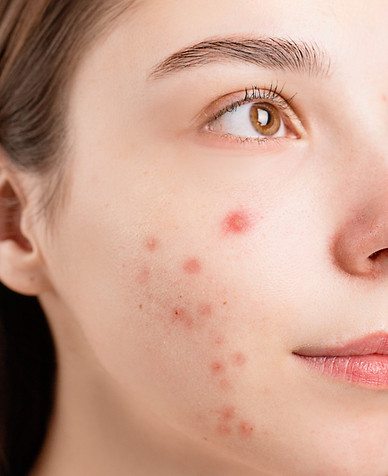top of page

ACNE
Widget Didn’t Load
Check your internet and refresh this page.
If that doesn’t work, contact us.
WHAT ARE THE TYPES OF ACNE?

WHAT ARE THE CAUSES OF ACNE
-
Build-up of dead skin cells in the pore.
-
Growth of bacteria in the pore.
-
Excess or high production of oil in the pore.
-
Using oily or greasy personal care products (like heavy lotions, creams or hair pomades and waxes) or working in an area where you routinely come in contact with grease (such as working at a restaurant where there are greasy food surfaces and frying oil).
-
Stress, which increases the hormone cortisol, can also cause acne to flare.
-
Some medications.
-
Genetics.
-
Clothing and headgear, like hats and sports helmets.
-
Air pollution
-
Fluctuating hormone levels around the time of a woman’s period.
-
Picking at acne sores.

bottom of page






.jpeg)
.png)
.png)
.png)

